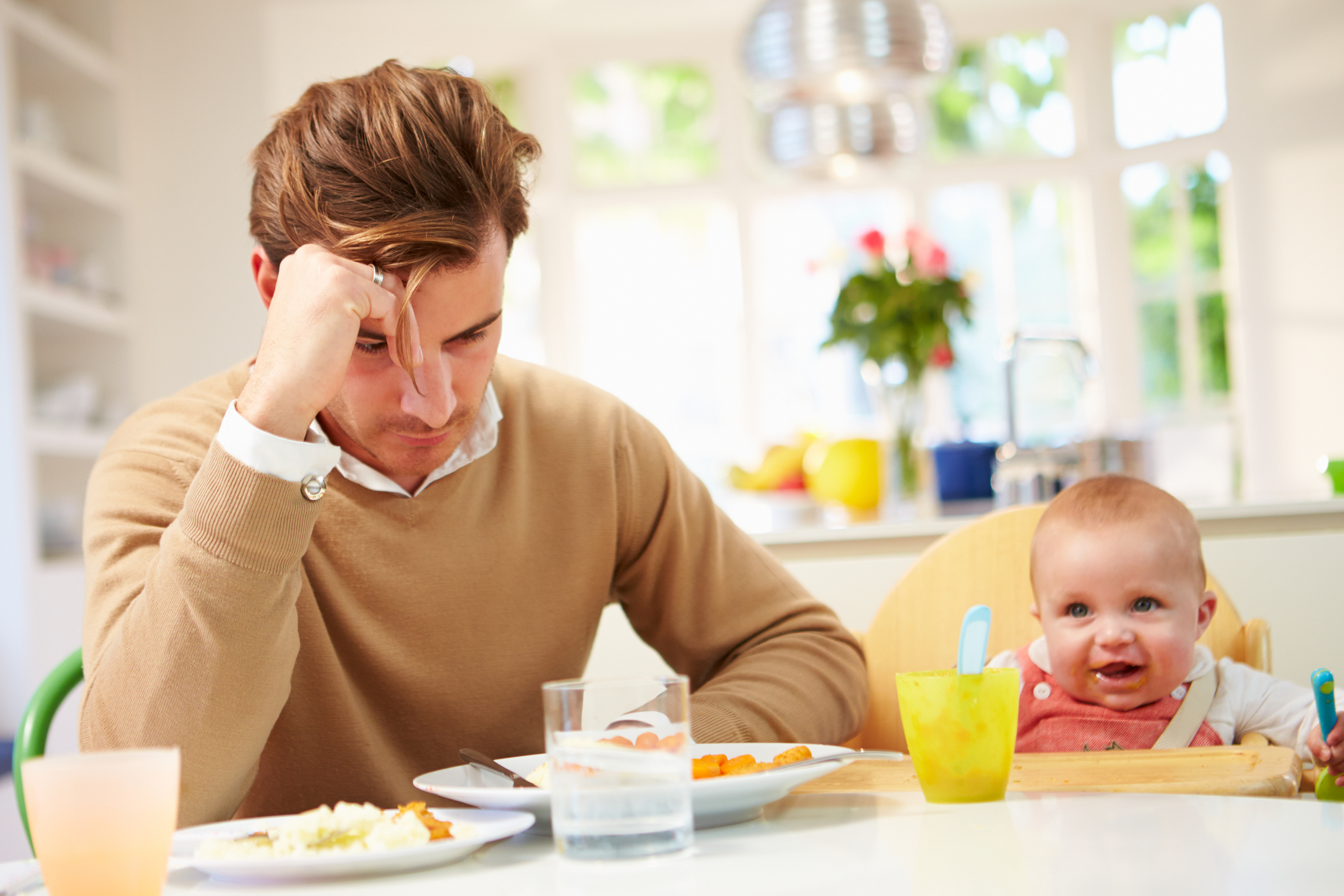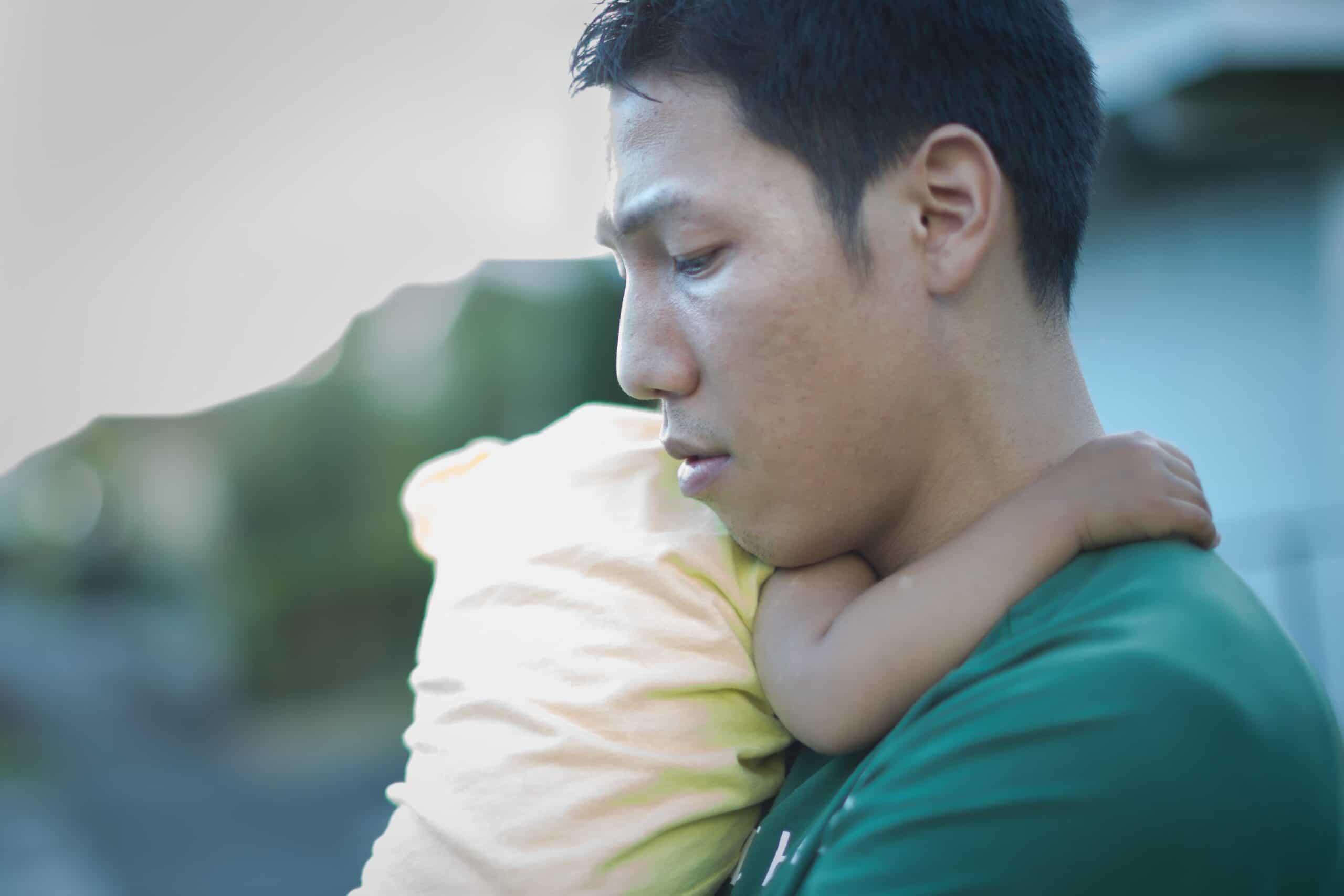When thinking about postnatal depression, the image that springs to mind tends to be of a new mother and the ‘baby blues’.
However, the reality is it can affect both men and women. According to the NHS, up to one in 10 new fathers experience postnatal depression. Research from the National Childbirth Trust (NCT) found over a third of new dads were worried about their mental health.
A new baby can bring with it a whole host of challenges, from financial struggles to changes in your relationships, all of which can be exacerbated by a lack of sleep.
Here’s what you need to know about paternal postnatal depression…
What is male postnatal depression?
The NHS describes postnatal depression as “a type of depression that many parents experience after having a baby”.
“Mental health can happen to any gender,” says campaigner, author and speaker Mark Williams from Fathers Reaching Out. He says his work is “never about taking attention away from mums”, but emphasises the need to care for fathers struggling with postnatal depression as well.
“It’s only in the last few [years] that men have actually started talking about mental health,” Williams says – and he hopes this will soon cover paternal postnatal depression better.
What are some of the contributing factors?
“Some of the big risk factors are a past history of anxiety, depression or trauma – it could be dads undiagnosed with bipolar, schizophrenia, ADHD,” explains Williams. “They’re self-managing all that before they became parents, and then you’ve got the lack of sleep that can impact mental health.”
Similar to women, traumatic birth experiences could also be a contributing factor for paternal postnatal depression.
A new study from Lund University in Sweden suggests paternal postnatal depression is more common in men who feel insecure in their relationship with their partner. Study author and psychologist Elia Psouni says: “Low self-confidence in close relationships seems to trigger parental stress, which in turn triggers the symptoms of depression.”
The pandemic might have an impact as well. “Covid has totally had an impression on fathers for various reasons: uncertainty, jobs,” Williams says.
What are some of the signs?

Elizabeth Duff, senior policy adviser at NCT, says: “Each dad will experience postnatal depression differently but the symptoms can be similar to those found amongst new mums and can include: feeling very low, tired and lethargic; feeling a sense of inadequacy or inability to cope; having difficulty sleeping; feeling guilty or unable to bond with their baby; having obsessive fears about their baby’s health or wellbeing, or about themselves and other members of the family.”
Where can you get help?
Duff says: “It’s important that men are encouraged and supported to speak up about their experiences, if not to their partner, then to their family, friends or GP.”
You can also call the NCT’s support line on 0300 330 0700, or contact the Campaign Against Living Miserably. For urgent help, call 111.





